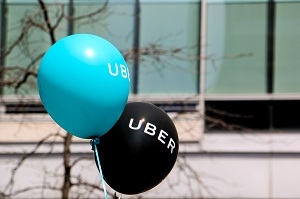Uber may be eyeing a public listing in 2019, but it reportedly intends to do so without outsize voting rights for co-founder Travis Kalanick and other early investors. Likewise, on September 21, 2017, Facebook announced that it would no longer pursue implementation of a contentious share reclassification plan that would have seen founder Mark Zuckerberg consolidate his voting control over the company. Coming on the heels of Snap’s non-voting share IPO and index exclusion, it appears that U.S. investors are pushing back on disproportionate voting structures.
 All things considered, Facebook’s plan to entrench Mark Zuckerberg as its leader couldn’t have come at a worse time, with investor tolerance for super voting and non-voting shares hitting an all-time low. With the plan now officially off the table, Facebook and its senior executives can divert more attention to the other issues facing the company, including controversies over the platform’s so-called fake news content.
All things considered, Facebook’s plan to entrench Mark Zuckerberg as its leader couldn’t have come at a worse time, with investor tolerance for super voting and non-voting shares hitting an all-time low. With the plan now officially off the table, Facebook and its senior executives can divert more attention to the other issues facing the company, including controversies over the platform’s so-called fake news content.
As to the ultimate succession of Zuckerberg’s control of Facebook, the company’s stock price appreciation in the last year or so has afforded him the opportunity to finance his philanthropy without risking his control over the company any time soon.
Facebook is only the latest company to face legal challenges over its plan to create a class of non-voting shares. Alphabet (then-Google), was the first high profile company to pioneer the plan and ultimately settled with shareholders for more than half a billion dollars in 2013 over claims related to the reclassification. In a more recent example, IAC/InterActiveCorp abruptly abandoned its plans to issue non-voting stock in June 2017, citing the “burden and distraction” the ensuing litigation would entail. Arguably, however, the plan proposed by Facebook was more aggressive than either the IAC or Alphabet proposals.
Perhaps to avoid facing similar legal challenges at some point in the future, Snap Inc. cut to the chase and provoked investor ire by offering non-voting stock to shareholders in its initial public offering. Snap’s issuance didn’t face the same backlash of a class action lawsuit but instead alienated itself from flagship indices such as the Russell 3000 and S&P500, both of which enacted plans to combat the issuance of non-voting shares in July 2017.
Uber has its own distractions as it prepares to go public. The voting rights change came amidst a battle for control of the boardroom, with Kalanick bypassing the rest of the board to appoint two new directors late last week. There are also widespread concerns about the culture of the tech startup, and the role of the CEO in setting the tone. It’s still unclear what role Kalanick will serve by the time the company lists its shares. However it appears that when it comes time for a shareholder meeting, he’ll have voting power equal to his economic stake – just like other investors.
Anthony Myers also contributed to this report. Anthony and Shane are analysts covering the United States and Canada.
